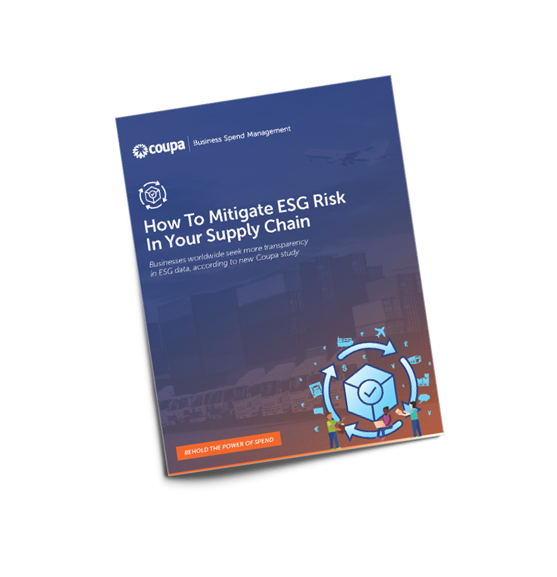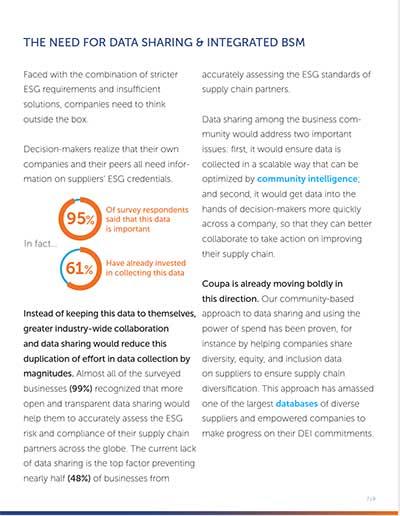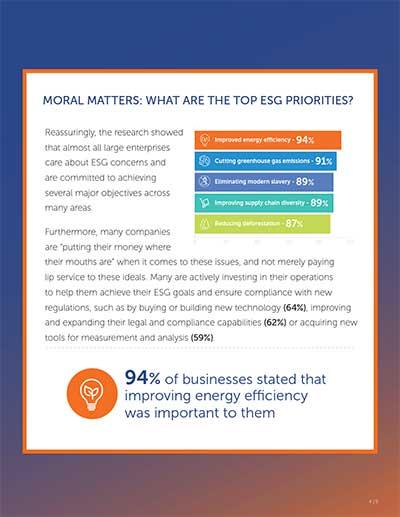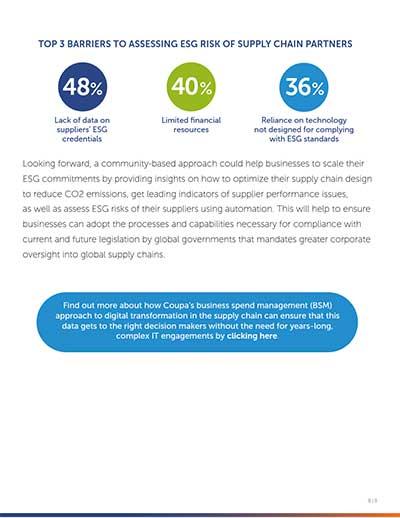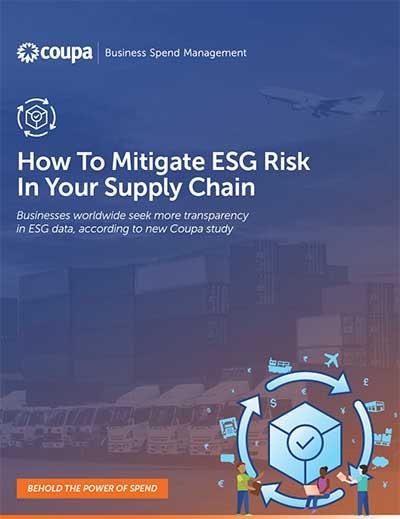How to Mitigate Risk in Your Supply Chain
The results of Coupa’s survey of 800 businesses reveal ways organizations are achieving ESG targets, despite the many challenges they are facing that make it difficult to do so.
Businesses Worldwide Seek More Transparency in ESG Data, According to This New Coupa Study
Download the new report to learn the answer to questions such as:
- What are the top ESG priorities for organizations?
- Are businesses doing enough to meet their ESG targets?
- What are organizations doing to prepare for expanding ESG legislation?
- How will data-sharing and integrated BSM help meet ESG goals?
- What are the top 3 barriers to assessing the ESG risk of supply chain partners?
Businesses today recognize the importance of having a positive impact on the world and embracing a social purpose beyond simply generating profits. Not only is it the right thing to do, but they face increasing pressure from multiple sources to make greater commitments and improved progress towards their environmental, social, and corporate governance (ESG) objectives.
The purpose of our survey of 800 businesses was to find out how organizations are prioritizing ESG goals, the obstacles they are facing to achieving these goals, and the ways they are overcoming the obstacles. Download the report to find out more.
FAQ
